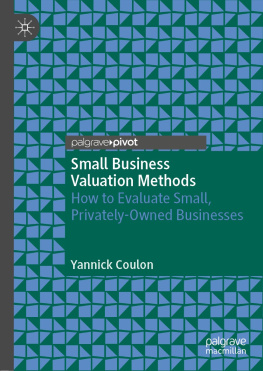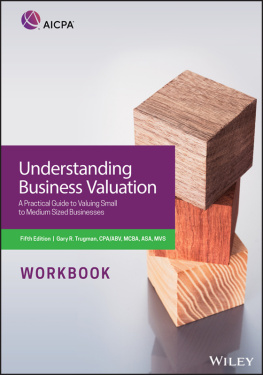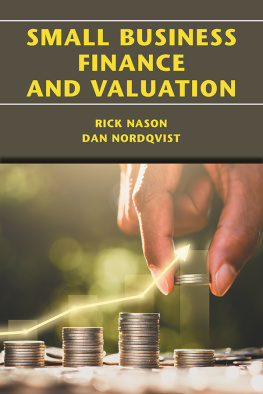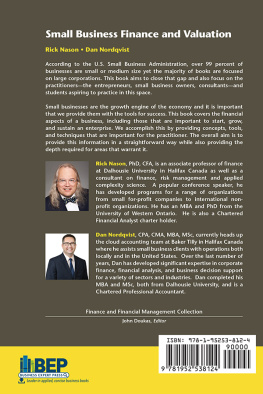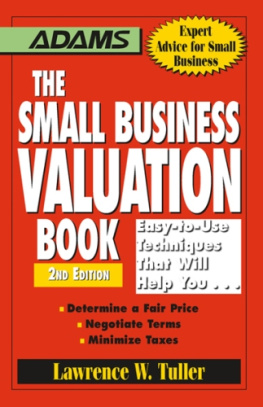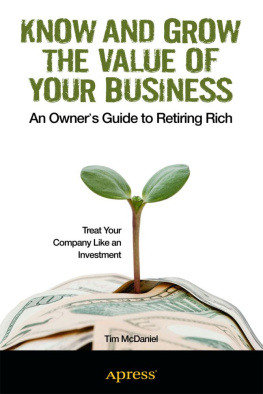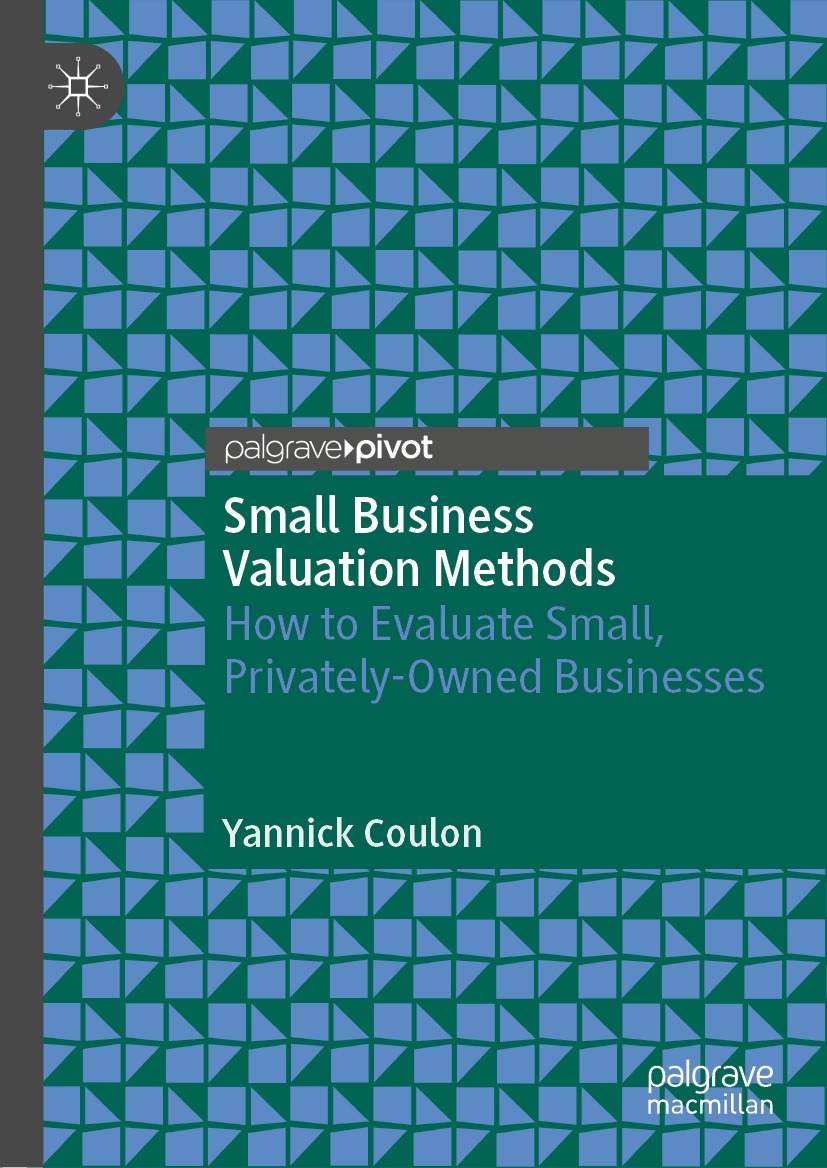Yannick Coulon - Small Business Valuation Methods: How to Evaluate Small, Privately-Owned Businesses
Here you can read online Yannick Coulon - Small Business Valuation Methods: How to Evaluate Small, Privately-Owned Businesses full text of the book (entire story) in english for free. Download pdf and epub, get meaning, cover and reviews about this ebook. year: 2021, publisher: Palgrave Macmillan, genre: Business. Description of the work, (preface) as well as reviews are available. Best literature library LitArk.com created for fans of good reading and offers a wide selection of genres:
Romance novel
Science fiction
Adventure
Detective
Science
History
Home and family
Prose
Art
Politics
Computer
Non-fiction
Religion
Business
Children
Humor
Choose a favorite category and find really read worthwhile books. Enjoy immersion in the world of imagination, feel the emotions of the characters or learn something new for yourself, make an fascinating discovery.
- Book:Small Business Valuation Methods: How to Evaluate Small, Privately-Owned Businesses
- Author:
- Publisher:Palgrave Macmillan
- Genre:
- Year:2021
- Rating:4 / 5
- Favourites:Add to favourites
- Your mark:
Small Business Valuation Methods: How to Evaluate Small, Privately-Owned Businesses: summary, description and annotation
We offer to read an annotation, description, summary or preface (depends on what the author of the book "Small Business Valuation Methods: How to Evaluate Small, Privately-Owned Businesses" wrote himself). If you haven't found the necessary information about the book — write in the comments, we will try to find it.
Valuation is the natural starting point toward buying or selling a business or
securities through the stock market. Essential in wealth management, the
valuation process allows the measurement of the strengths and weaknesses of a
company and provides a historical reference for its development.
This guide on valuation methods focuses on three global approaches: the assetbased
approach, the fundamental or DCF approach, and the market approach.
Ultimately, this book provides the basics needed to estimate the value of a small
business.
Many pedagogical cases and illustrations underpin its pragmatic and didactic
content. However, it also contains enough theories to satisfy an expert audience.
This book is ideal for business owners and additional players in the business
world, legal professionals, accountants, wealth management advisers, and
bankers, while also of interest to business school students and investors.
Yannick Coulon: author's other books
Who wrote Small Business Valuation Methods: How to Evaluate Small, Privately-Owned Businesses? Find out the surname, the name of the author of the book and a list of all author's works by series.

